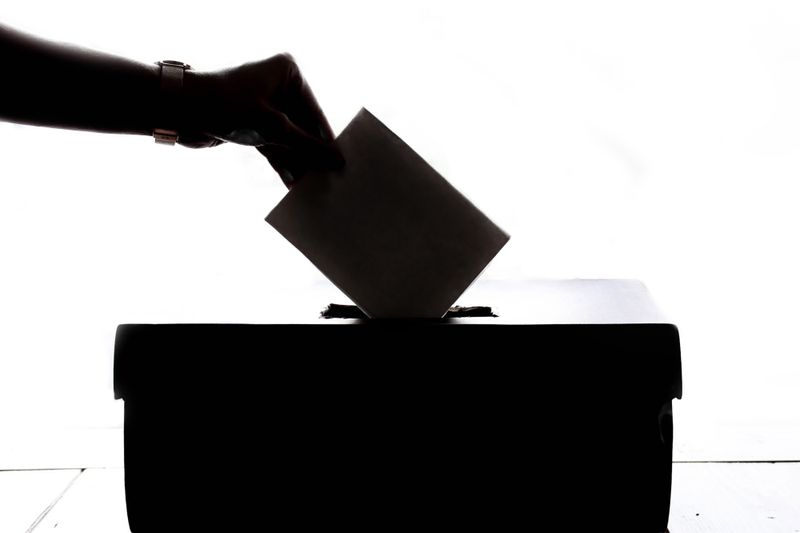The Origin and Significance of Juneteenth: A Celebration of Freedom and Reflection
A Historical Journey through Juneteenth
On Monday, Americans will come together to celebrate Juneteenth, a holiday that marks the day when the last enslaved people in the United States learned they were free. For generations, Black Americans have commemorated the end of one of the darkest chapters in U.S. history with a mix of joy, parades, street festivals, musical performances, and cookouts.
However, the journey towards recognizing and embracing Juneteenth as a federal holiday has been a long and winding one. It was not until 2021 that President Joe Biden signed a bill passed by Congress to officially designate June 19th as a federal holiday. This delay in federal recognition mirrors the slow progress the country has made in acknowledging the importance of racial history and the struggles endured by African Americans.
The Birth of Juneteenth
The origins of Juneteenth trace back to enslaved people in Galveston, Texas. Although President Abraham Lincoln’s Emancipation Proclamation had freed the slaves in 1863, the news could not be enforced in many Southern states until the end of the Civil War in 1865. Some white slaveholders even deliberately withheld this information from Black communities to continue exploiting their labor.
It was not until June 19, 1865, when Union Maj. Gen. Gordon Granger and his troops arrived in Galveston, Texas, that the news of freedom finally reached the enslaved people there. Granger delivered General Order No. 3, which declared their freedom and affirmed equal rights. This date became known as Juneteenth, and the celebrations began in Galveston, with church picnics, speeches, and readings of the Emancipation Proclamation.
The Evolution of Juneteenth Celebrations
Juneteenth celebrations have evolved over the years, influenced by societal changes and the ongoing struggle for racial equality. The national reckoning over race prompted by the murder of George Floyd in 2020 laid the groundwork for Juneteenth to gain momentum as the first new federal holiday since Martin Luther King Jr. Day in 1983.
Today, there is a movement to use Juneteenth as an opportunity for activism and education. Communities engage in service projects aimed at addressing racial disparities, while educational panels delve into topics such as healthcare inequities and the need for equal access to parks and green spaces.
However, like most holidays, Juneteenth has not been immune to commercialism. Retailers, museums, and other venues have capitalized on the holiday by selling Juneteenth-themed merchandise. While these efforts can raise awareness, they must be done in a way that respects the historical significance and purpose of Juneteenth.
Maintaining the Spirit of Juneteenth: Reflection and Education
As Juneteenth gains broader recognition, it is crucial to ensure that the true meaning of the holiday is not overshadowed or diluted. Juneteenth is not merely a day for celebration; it is a day for reflection on the sacrifices made for freedom and a reminder of the work that still needs to be done to achieve full racial equality.
Efforts should be made to incorporate educational elements into Juneteenth celebrations, providing opportunities for individuals to deepen their understanding of African American history, systemic racism, and the ongoing struggles faced by marginalized communities.
Furthermore, companies and organizations should approach Juneteenth marketing campaigns with sensitivity and respect. Instead of using the holiday purely for profit, they should use their platforms to amplify Black voices, support Black-owned businesses, and contribute to initiatives that actively work towards dismantling systemic racism.
The Fragility of Freedom
Juneteenth serves as a reminder of the fragile nature of freedom and the constant vigilance required to ensure its preservation. As we celebrate this holiday, we must also acknowledge the challenges that persist in our society.
In the current racially and politically charged climate, it is crucial to reflect on the struggles faced by marginalized communities and reaffirm our commitment to fostering a more inclusive and equitable society. Juneteenth should serve as a call for action, inspiring individuals to advocate for justice, demand meaningful change, and work towards dismantling systems of oppression.
In Conclusion
Juneteenth is a pivotal holiday in the United States that commemorates the emancipation of enslaved African Americans and serves as a powerful reminder of the ongoing fight for racial equality. As we celebrate Juneteenth, it is essential to honor its historical significance, engage in meaningful reflection and education, and actively contribute to the pursuit of a more just and equitable society.

<< photo by Pixabay >>
The image is for illustrative purposes only and does not depict the actual situation.
You might want to read !
- Exploring the High Stakes: Sunday’s Final Round Pairings at the U.S. Open in Los Angeles
- TOP CONTENDERS EMERGE: A Thrilling Start to the Men’s College World Series
- The Rise of a Gator: From Quarterback to Omaha Landmark – Carter’s Corner
- Celebrating Fatherhood and Community: A Heartfelt Message from Pasadena Councilmember Tyron …
- The Success and Struggles of Ray Lewis III: Carving His Own Path in Football
- A Reflection on David Freese’s Decision to Decline the Cardinals’ HOF Invitation
- Juneteenth: Uncovering the Historical Significance of A&M University
- Celebrating Juneteenth: Embracing Freedom and Unity as One America
- “Exploring the Roots and Celebrating the Richness of Juneteenth Traditions”
- Exploring Juneteenth Celebrations Across the United States.
- Fear and Tragedy: Unraveling the Motives Behind the Washington Gorge Mass Shooting




